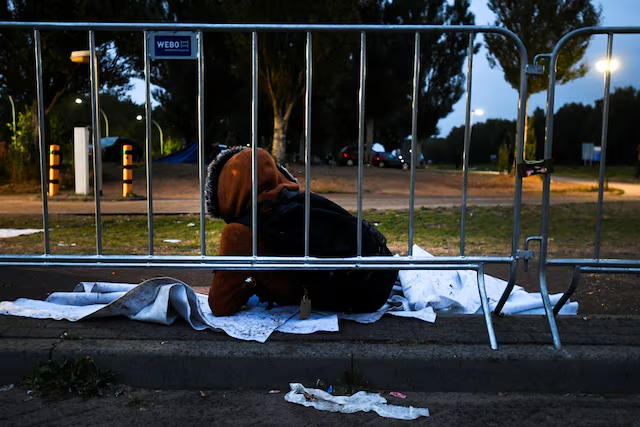Deputy President Rigathi Gachagua has fallen out with the president only two years after they were elected on a joint ticket
Nairobi, October 17– Kenyan Deputy President, Rigathi Gachagua, has fallen ill and failed to appear in the Senate to testify at his impeachment trial, with his lawyer saying that he has been taken to hospital ‘very sick’.
The deputy president, who was present in the house in the morning, had been due to appear in the afternoon to defend himself before a vote was expected on Thursday evening about whether to remove him from office.
“The sad reality is that the deputy president of the Republic of Kenya has been taken sick, very sick, and is… in hospital,” said his lawyer Paul Muite.
Proceedings were adjourned for a few hours and now his lawyer has asked the Senate to pause the hearing for several days.
Mr Muite said Gachagua, popularly known as “Riggy G”, had been admitted to The Karen Hospital suffering from intense chest pains.
Speaking to local Citizen TV earlier, Senator Daniel Maanzo said the deputy president “just looked tired” but had lunch at his office with other senators who had said he was fine, with everyone expecting him to appear for his defence.
Senate Speaker Amason Kingi, who has said the impeachment trial cannot be legally extended beyond Friday unless for “exceptional reasons”, has briefly adjourned proceedings to consider the latest request.
Two-thirds of the 67 senators are required to oust Gachagua, who faces 11 charges, including corruption, inciting ethnic divisions and undermining government.
As the trial began on Wednesday, the deputy president pleaded not guilty to each of the charges as they were read out in the house. He has described the impeachment as a “political witch hunt”.
An overwhelming majority of MPs in the National Assembly last week voted to approve his impeachment, setting the stage for the Senate trial.
He has fallen out with President William Ruto, just two years after they were elected on a joint ticket.
The row came to a head in June when Gachagua, in an act seen as undermining the president, blamed the head of the intelligence agency for not properly briefing Ruto and the government over the magnitude of mass protests against unpopular tax hikes.
In a huge blow to his authority, Ruto had just been forced to withdraw the taxes. He sacked his cabinet and brought in members of the opposition to his government.
Ruto has not commented on the impeachment of his deputy.
Mwengi Mutuse, the lawmaker who had moved the motion, appeared in the Senate as a witness on Wednesday, accusing Gachagua of violating the constitution while taking the house through the various grounds of his motion.
He framed the accusations against the deputy president as “extraordinary” wrongdoing that would merit impeachment.
He gave the example of Gachagua’s remarks that the government was like a shareholding company, suggesting that only those who voted for the government would benefit in terms of development and services.
He also accused the deputy president of acquiring massive wealth through corrupt dealings, among other accusations.
The lawmaker was then put to task during cross-examination and at times appeared to have a hard time defending his evidence.
A clip of President Ruto speaking at a rally was played in the Senate where he referred to residents of Murang’a, in central Kenya, as “major shareholders” of the government.
Gachagua’s lawyers asked Mutuse how the deputy president could be faulted for “assisting” the president.
The lawmaker was also pressed to justify the basis of the valuation of the wealth the deputy president is alleged to have acquired.



